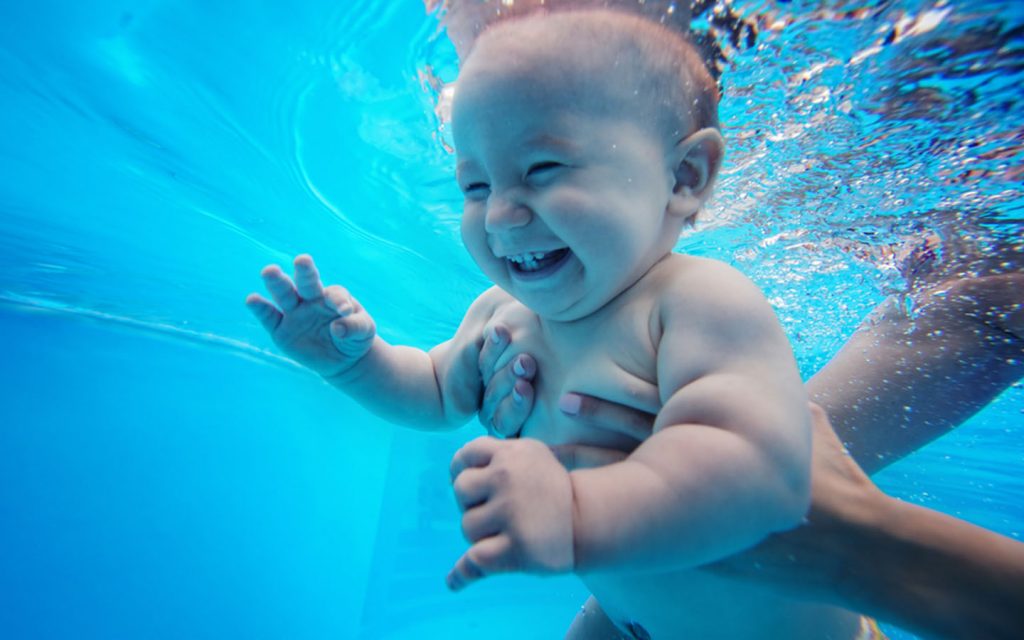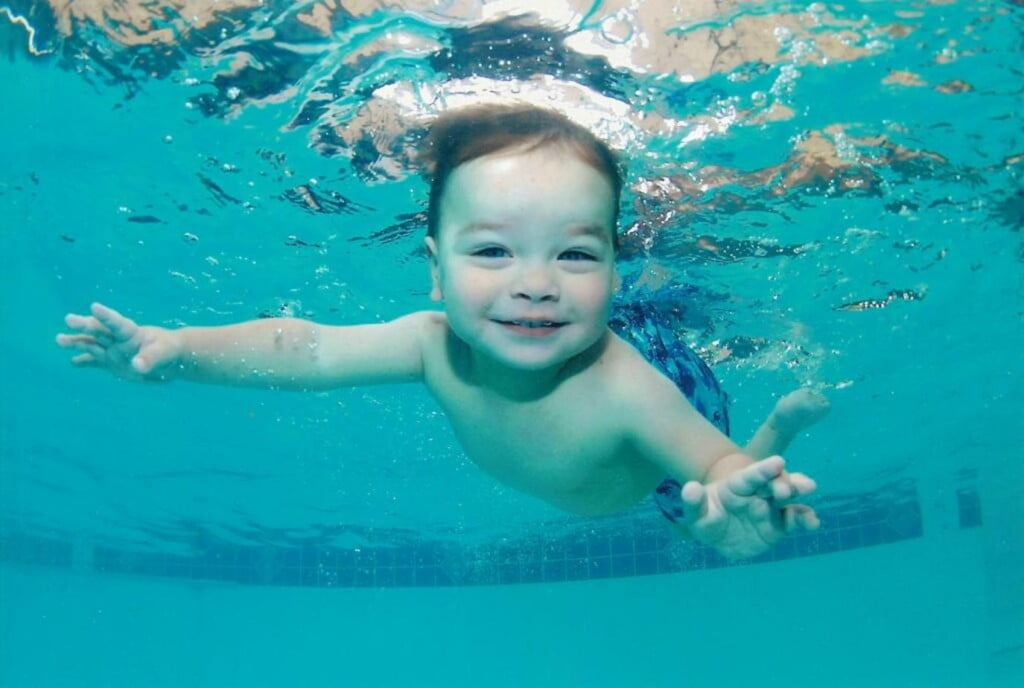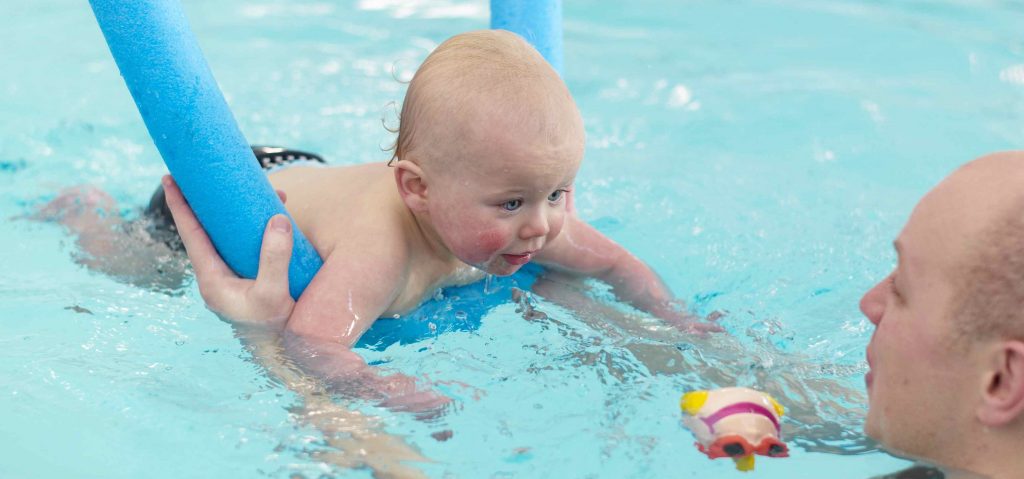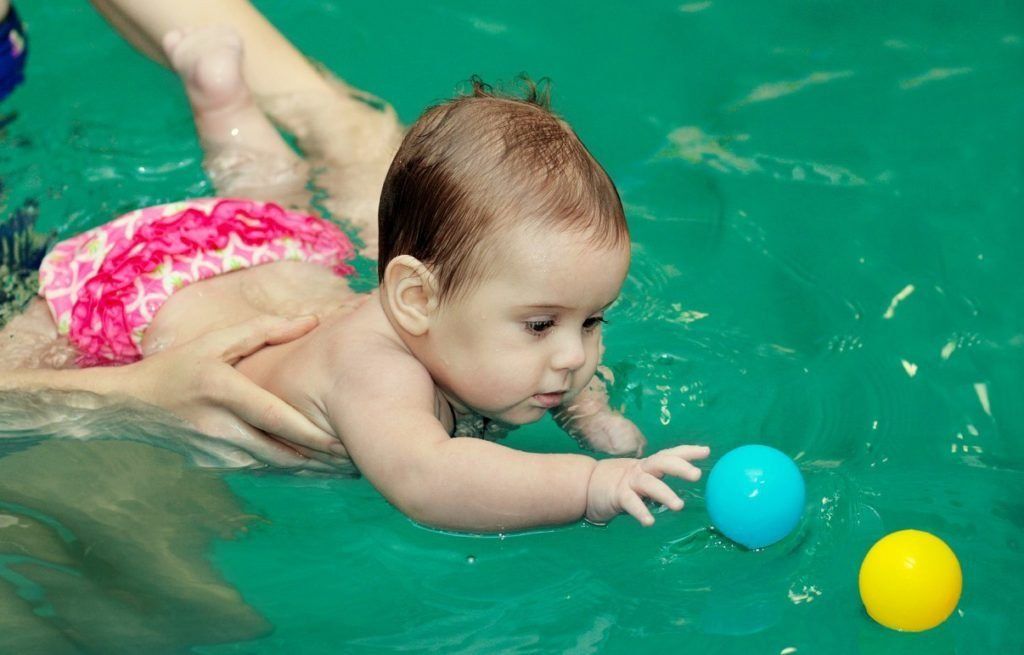Go Swim Istanbul

Swimming for babiesRecently, the phenomenon of education has spread infant swimming and newborns, as it was noticed that newborns and infants mastered swimming skills, which adults sometimes find difficult to master, especially since swimming is an innate skill acquired by an individual at the moment of birth.
This is due to the reason that infants and newborns can easily swim, because they are biologically accustomed to swimming while in his mother’s womb, where his limbs are qualified to move in the water easily.
Today, in this article, we will mention one of the most important ways to develop skills Swimming for babies And develop it well, under the supervision of specialized trainers in our Free Dive Center.
Benefits of swimming for babies
education Swimming for babies Newborns are among the most important skills that a child may develop, such as walking, crawling, and others.
- help Swimming for babies It improves heart and circulatory health.
- Strengthening the functional capabilities of the lung, as it helps the lung to retain more air, which helps the brain to grow faster.
- Improving and strengthening muscle functions, as swimming strengthens the child’s muscles. At the age of 5 or 6 months, the child’s walking period begins. With swimming exercises, the child’s muscles grow and he can walk before children of his age who do not swim.
- Swimming coaches point out that while swimming the child moves his arms while kicking his legs, which means that his brain registers the sense of touch of the water as well as its resistance, which enhances its power in strengthening the brain.
- Improving the child’s endurance, as children who practice swimming achieve progress in physical and mental development compared to their peers who do not swim.
- The child acquires skills easily compared to children of his age, as he has the ability to learn quickly compared to others.
- that teach Swimming for babies It enhances the child’s ability to get rid of birth problems such as muscle stiffness and lack of oxygen in the brain after birth by improving the air capacity of the lung, which is stimulated by swimming to load a greater proportion of oxygen compared to the age of the child.
- Swimming helps to tighten the child’s muscles properly at an early age and also strengthens the nerves.
- contribute Swimming for babies In improving the child’s mood and regulating sleep, as the child in the early stages often finds it difficult to adapt to the new world.

Swimming lessons for newborns
education Swimming for babies And newborns, and it is one of the things that you will discover in your child easily when you try to put your child in a basin full of water with his head raised, and it is preferable that you put him in a position of support on your arms in order to protect him at first from falling or drowning, and then notice his movements.
This is the basis on which to teach swimming to infants, or in a correct sense, discovering their ability to swim.
exercises to teach Swimming for babies in deep dive
- At Free Dive, we are keen to organize swimming lessons using the special swimming pool for infants
- We have trained and qualified professionals to teach Swimming for babies And deal with them academically.
- We work primarily by working with the baby’s basic movements, support, control, so that even when in the water we do not disturb or miss the baby.
- We do some exercises to strengthen and develop the child’s skill in swimming, as the feet are immersed in water to allow the child to get used to the temperature of the bath. Then gradually and slowly, we immerse the rest of the body.
- It is imperative to support the child, as holding the child tightly develops the child’s sense of being in safe hands.
- Swimming courses for children are offered thoughtfully with the first lessons taking no more than 10 to 15 minutes. The time can be increased gradually, as the child will be absorbed into the water.

Tips and advice for teaching Swimming for babies
Some tips and advice to teach swimming for children
- The recommended temperature should be 37°C. Gradually, the temperature can be reduced by half a degree, reaching +30 or +28 ° C.
- Parents should stay with their children so that they feel safe and not afraid of water
- Before starting to swim, a special diaper must be provided for swimming
- Moisturizing the child’s skin through a cream against the sun, even if the place is closed, in order to preserve the child’s sensitive skin from infections, even if the place is closed.
- Create an atmosphere of fun with the child by bringing his favorite food, and some water games
- Avoid training the child at bedtime or when he is exposed to any cold or colic

The best places to teach swimming for babies in Istanbul
Free Dive Center is one of the best places for education Swimming for babies This is due to its features, including:
- The center is equipped to teach swimming for infants under the supervision of a group of trainers specialized in training infants.
- Sterile pools equipped to teach swimming for infants, in addition to games and colors that attract children.
- We use the latest tools that help children learn to swim and master some skills.
- We have a specialized staff to train infants with special needs.
- We offer a variety of free swimming courses for infants and older children
Top Frequently Asked Questions About Education infant swimming
When can I start infant swimming lessons?
You can start with an infant from two to three weeks old. Do not be afraid of such an early age: for a child, water is his natural environment in which he feels most comfortable and it is better to choose the moment when the child is cheerful, nourished, not capricious and does not sleep, nothing bothers him
What are the benefits of swimming for newborns?
Water calms the child and stabilizes his nervous system, and water procedures increase blood circulation, improve the work of the heart and respiratory system.
What are the disadvantages of swimming for infants?
Often the damages of swimming for infants are respiratory infections, congestion and catarrh, due to the chlorine in the water, and that children who spend a long time in swimming pools are more likely to develop asthma.
Swimming Lessons in Istanbul
Baby Swimming Lessons in Istanbul
Free Diving & Scuba Diving Lessons in Istanbul
